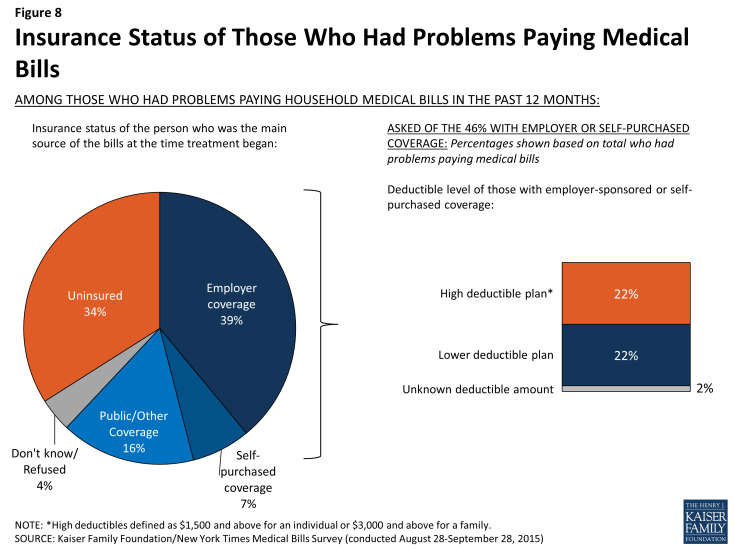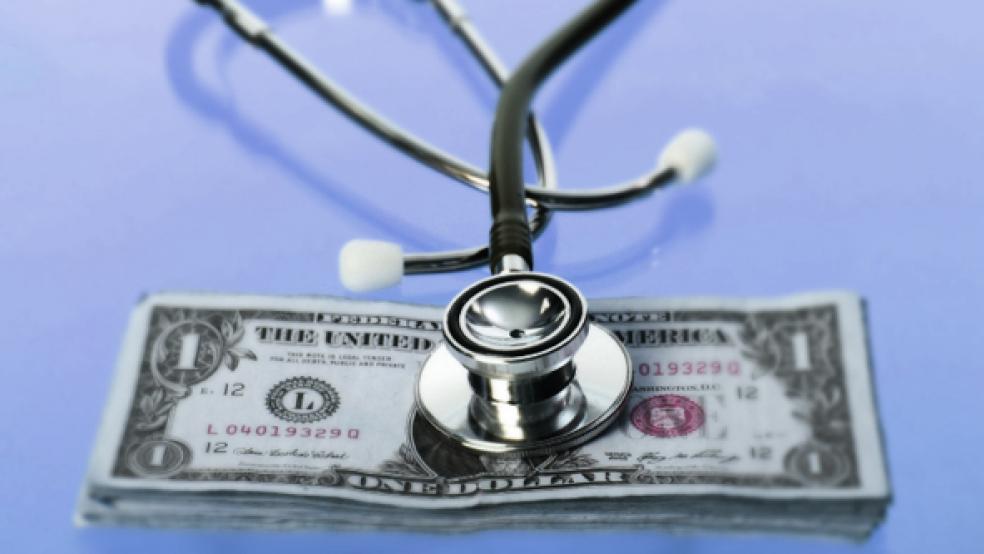The aim of health insurance is to shield consumers from the high cost of medical services, but one in five working-age Americans with health insurance has trouble paying their medical bills, according to a new survey by the Kaiser Family Foundation and The New York Times.
To pay down those bills, more than 60 percent of those having trouble paying their medical bills have used up most or all of their savings, and more than 40 percent got another job or added hours to earn more money. More than three-quarters have delayed a vacation or major household purchase, and near 40 percent have increased their credit card debt.
Related: Two Big Problems for Obamacare: Cost and Confusion
Even with insurance, typically obtained through an employer, three quarters of those with problem medical bills say that the total cost of insurance copays, deductibles or coinsurance was more than they could afford. Those with high-deductible plans, which have become more popular among employers providing coverage, were more likely to have medical bill problems.

In addition to struggling with known costs, about a quarter of those with unaffordable bills say they received unexpected claim denials, and about a third say they received out-of-network care that wasn’t covered by insurance. More than two-thirds of those who got out-of-network care didn’t know that the provider would not be covered
In order to prevent racking up bills, 62 percent percent of insured Americans said they have postponed dental care, more than 40 percent have skipped doctor-recommended tests or treatment, and 41 percent have opted not to fill a prescription.





